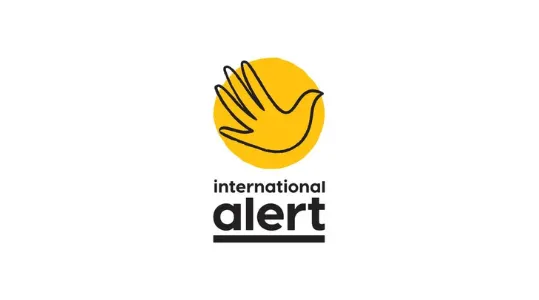Breaking the binary: LGBT+ inclusive approach to the women, peace and security agenda in Nepal and Myanmar
02 December 2022

Authors: Ndeye Sow, Charlotte Onslow, Swechchha Dahal and Anthony Pemberton
Executive summary
This report presents the findings of two vulnerability assessments of the LGBT+ communities in Myanmar and Nepal. The report also draws on the outcome of five dialogue sessions between LGBT+ and women’s rights and youth organisations in both countries. The assessments and dialogue workshops were part of a six-month pilot project on LGBT+ Inclusive Approaches to Conflict and the Women, Peace and Security (WPS) Agenda, implemented by International Alert in Myanmar and Nepal. The purpose of the project was to promote the inclusion of the LGBT+ community in the WPS agenda in the two countries.
The vulnerability assessments were conducted in late 2021 and early 2022, across Lumbini and Bagmati provinces in Nepal, and Yangon and Northern Shan in Myanmar. They were cross-sectional qualitative studies, conducted using focus group discussions (FGD) and key informant interviews (KIIs). The target groups for the studies were LGBT+ people, LGBT+ key officials and activists, gender experts and representatives from women and youth-led organisations.
The vulnerability assessments identified key lived experiences of LGBT+ people and perceptions of women’s rights and youth activists, as well as other relevant stakeholders on LGBT+ issues. Myanmar and Nepal each have specific socio-political and conflict contexts. The shrinking of the political and public space since the February 2021 military coup in Myanmar, combined with the negative economic and social impacts of the coronavirus (COVID-19) pandemic, have contributed to further marginalising sexual minorities and other vulnerable groups. Comparatively, Nepal is considerably more advanced than Myanmar in terms of LGBT+ rights. Over the post-conflict period of the Comparative Peace Accord (CPA) followed by Nepal’s federalisation, the country has adopted progressive national legislation and legal provisions in the constitution for a third gender identification. There are, however, essential similarities between the issues faced by the LGBT+ communities in both countries. The key issues identified by the project across both contexts are: identity and citizenship; social stigma, violence and exclusion; lack of equal participation in decision-making; and lack of equal economic opportunities. The assessments also examined the linkages between WPS and LGBT+ issues and some of the obstacles to the integration of LGBT+ issues into the WPS and broader gender equality agenda in both countries.
Download PDF
View the original
Announcements
21 May 2025
Open letter: Malaysia must lead ASEAN with principle, not hypocrisy, to address the Myanmar crisis

Progressive Voice is a participatory rights-based policy research and advocacy organization rooted in civil society, that maintains strong networks and relationships with grassroots organizations and community-based organizations throughout Myanmar. It acts as a bridge to the international community and international policymakers by amplifying voices from the ground, and advocating for a rights-based policy narrative.